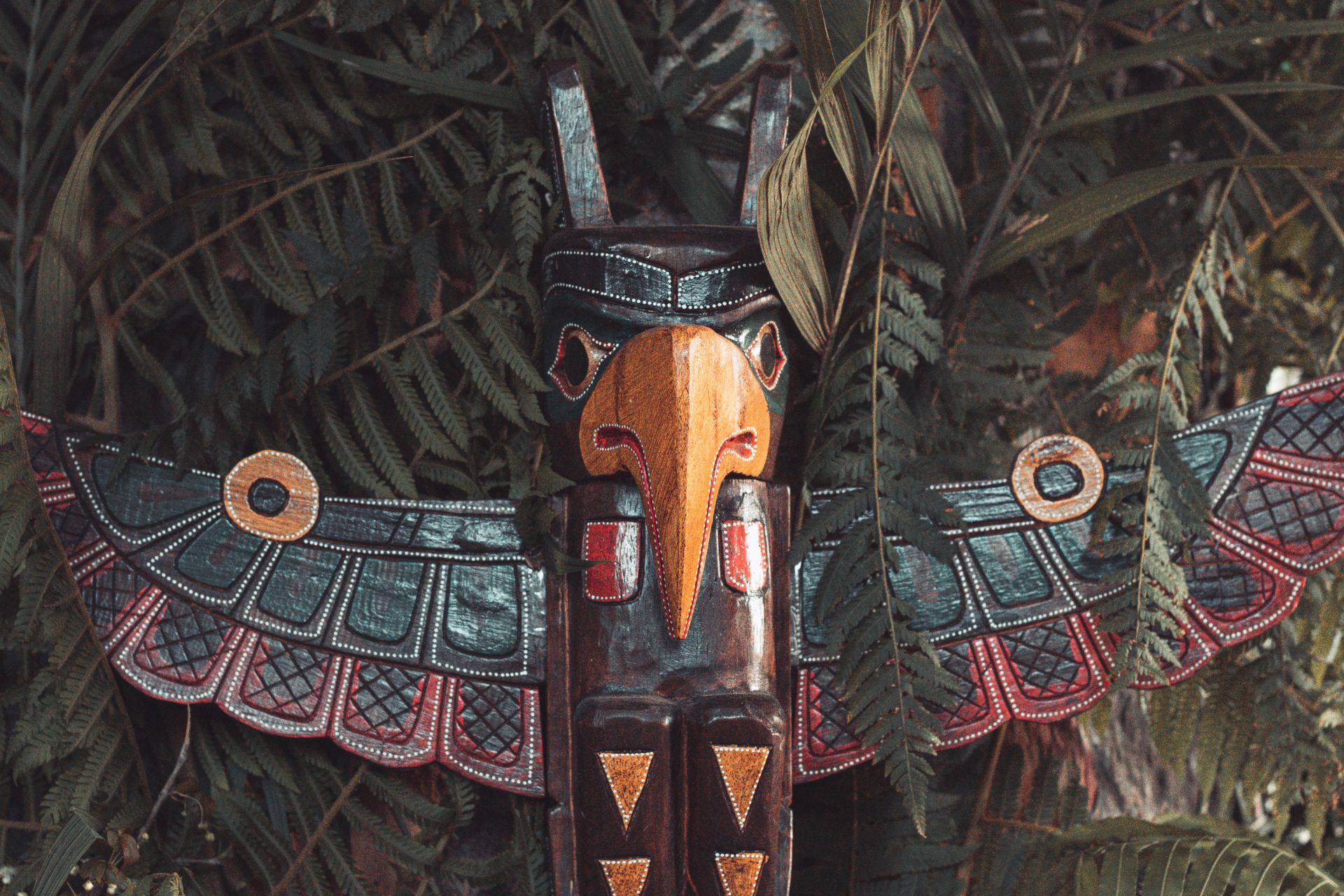
Photo by Stéfano Girardelli on Unsplash
The things ancestors say, such as, “expect to be surprised!”
“Surprise! You’re now living in Tahlequah (Tal-a-kwa, Tal-a-kwan, or Dil-a-gwa, as one often hears it pronounced within the Cherokee Nation). Bet you weren’t expecting that!”
There are at least two “Tahlequahs” that I know of, the city in Oklahoma and headquarters of the Cherokee Nation, and the tiny community on Vashon Island, Washington, formerly a Coast Salish tribal village. I’ve written about my Cherokee ancestors “visiting” me, and in light of Native American Heritage Month, it would be no surprise to me to encounter them yet again. In the third chapter of Galatians, Paul proposed the idea that Christians are rightful heirs to the blessings promised to Abraham by God (Galatians 3:7-9). That is somewhat of a parallel to my Cherokee experience with respect to blessings from ascendants.
My Cherokee ancestors, after 1803, were of the Methodist tradition. The one who connects me through a heritage relationship to the modern Cherokee Nation via the Dawes Roll, a third great-grandmother, eventually moved to the new Indian Territory, and is buried not far from today’s Tahlequah, OK. She has spoken to me so powerfully, I wrote a novella, Chattahoochee Rain, about her and her family. Though for a while I wondered if I might someday be living in Oklahoma, the Tahlequah where I landed a little more than two years ago is quite different, yet a bit ironic, considering it was not planned that way and the fact that I had no idea the community was called Tahlequah until we had purchased the home here. Spooky, no? Expect to be surprised.
The Tahlequah where I live was originally called Clam Cove by colonizers who resettled the area during the 19th century. It served, as it does today, as the site of a principal ferry dock on Vashon’s south end. In 1904, tourists paid fifteen cents a head to ride the ferry from Tacoma’s Point Defiance to Tahlequah on Vashon. That seems like quite the bargain compared to twenty-two dollars today! Ferry service for automobiles began in 1916 and has been relatively consistent to the present, the pandemic and crew shortages notwithstanding.
Locals named the community “Tahlequah” after a resident, Ethel Whitfield, entered it in a contest sponsored by the Tacoma Chamber of Commerce. Apparently, Ms. Whitfield was familiar with Tahlequah, OK, as it preceded the newly-named ferry dock, and the name gradually came to include the southern tip of the island. Various accounts exist as to the origin of the name in Oklahoma, and there is actually no definitive answer. Interestingly, an orca that was born around 1998, research name J35, was named Tahlequah. Her calf, Tali, died in 2018 not long after birth, and Tahlequah gained worldwide attention as the killer whale that carried her dead calf around for 17 days in what was perceived as an expression of grief.
When my wife and I relocated to the Pacific Northwest, we rented a house in Kirkland, WA. Why, out of all places in the country, would I land in an area where the wapato, or wild potato, once grew along the waters of Lake Washington? I ask this question because my father’s mother’s people were of the Cherokee wild potato clan. When I was a teen, my grandmother taught me how to make potato soup, which I’ve made off and on ever since. This was a big deal to me coming from a family where inter-generational traditions were sparse. Was I preparing to be surprised?
Why, out of all places in the region, when it came time for us to leave that rental house in Kirkland and buy a home again, did we wind up in a rural, remote community that we later discovered was named after the capital of the Cherokee Nation? Why, in my fifth decade of life, did I choose to reside in a region with two active Cherokee Nation satellite communities? And why, after all these years, would I be writing for a Cherokee newsletter or be invited to study the Cherokee language (which I’ve yet to fully embrace)?
Maybe it has something to do with the willingness to be surprised by the Great Spirit’s sense of humor, along with the disposition to accept those ancestors’ invitations when they reach out to me.
Native American Heritage Month is a celebration of not only indigenous people and their descendants, but how they relate to God, the land, one another, and the world at large. Did my Cherokee ancestors play a role in the delightful surprise I received when I realized I was living in a namesake of the great Cherokee Nation? I would have to say yes, based on other events in my life of similar mysteriousness. Tahlequah! Perhaps, in my case, the word can mean “expect to be surprised!”
May the warm winds of heaven blow softly upon your house.
May the Great Spirit bless all who enter there.
May your moccasins make happy tracks in many snows,
and may the rainbow always touch your shoulder. Amen.
(Ancient Cherokee prayer)
The views expressed are those of the author and not necessarily those of American Baptist Home Mission Societies.


